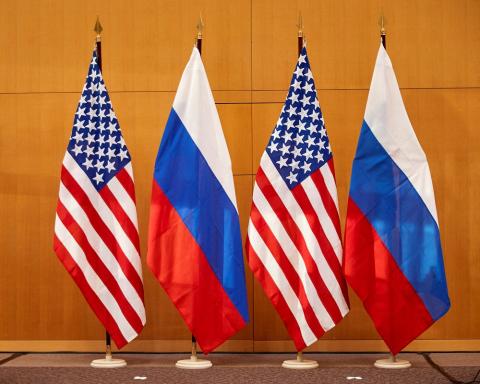
For well over a year, it seemed certain that the sole treaty still in place to keep a check on the global nuclear arms race would expire without much ado, as the then-US President Donald Trump refused to discuss the extension of New START (Strategic Arms Reduction Treaty) with his Russian counterpart Vladimir Putin.
Trump had refused for two reasons. One, he accused the Russians of cheating by bringing in new missiles that violated the pact; and, two, he wanted to include Chinese nuclear weapons in the deal, saying that Beijing had emerged as a major threat to the US without any curbs or checks on it.
Denying that they were cheating, the Russians had openly called for a renewal of the deal, saying that, without it, the doomsday scenarios of the Cold War — when both the Americans and the Soviets were piling up arms, with each possessing enough nuclear missiles to destroy the entire planet several times over — would return.
Since the fall of the Soviet Union in 1991, the arms treaties that have been in place have led to a significant cutback in the number of missiles that both the US and Russian militaries have today, bringing a semblance of order to the world. However, many of these agreements fell victim to the Trump mandate, which saw a huge setback in the bilateral relations between the two countries, and a few key agreements expired on his watch.
In 2019, both the US and Russia withdrew from the 1987 Intermediate-Range Nuclear Forces Treaty and, just last month, Russia decided to follow the US in pulling out of the Open Skies Treaty that permitted surveillance flights over military facilities and helped build trust and transparency. Today, New START is the only remaining nuclear arms control deal between the two countries. This treaty, signed in 2010 by former US President Barack Obama and then-Russian President Dmitry Medvedev, limits each of the two powers to no more than 1,550 deployed nuclear warheads and 700 deployed missiles and bombers. It also allows sweeping on-site inspections to verify compliance.
Trump’s intransigence threatened to put the clock back even on this last bulwark and push the world closer to a doomsday scenario. The reality of this situation became evident when the Bulletin of the Atomic Scientists last year advanced its Doomsday Clock to 100 seconds to midnight (the apocalypse), the closest it has ever been.
Keeping the clock at the same time for 2021, the atomic scientists last month noted several key threats to the world from nuclear weapons. It said that both the US and Russia had been engaged in developing new delivery systems for their nuclear bombs, including the very dangerous hypersonic missiles that fly faster than the speed of sound and can escape most of the radars in place across the world today.
It also cited the development of nuclear weapons across the world, including by China, North Korea, India and Pakistan. It said that, to prevent nuclear modernization programs from snowballing into a full-scale nuclear arms race, it was crucial that the US and Russia agreed on an extension of New START for five more years, thus allowing enough time for the countries to negotiate and put in place a follow-on agreement.
In view of this, it was encouraging that Putin and the new US President Joe Biden agreed to an extension last week during a call that was the first formal exchange between the two leaders since Biden was sworn in on Jan. 20.
Since then, the momentum has only picked up. The Russian parliament subsequently approved the extension, with both houses unanimously voting in favor. The Kremlin also agreed to complete the necessary extension procedures in the coming days. Now Putin has to sign it into law, which can be done in a matter of hours. Thankfully, the extension does not need approval from the US Congress, meaning it is a mere formality that the extension will become a reality. The turnaround has been rapid, to say the least, and absolutely necessary — its importance cannot be overstated.
With the extension settled, it is important for the two countries to now take the lead and create other treaties that will take into account the new developments that have taken place in the nuclear weapons domain over the past two decades. This particularly relates to the new and more deadly delivery systems.
If the two biggest nuclear powers are able to reach other framework agreements, it could clear the path for discussions on other equally important weapons issues, notably the spread of weapons to an increasing number of nations around the world, including so-called rogue states.
The turnaround has been rapid, to say the least, and absolutely necessary — New START’s importance cannot be overstated.
Ranvir S. Nayar
Right at the beginning of the Biden era, a broad-based bilateral deal that covers the entire gamut of nuclear weapons and their delivery systems, which are both already here and under development, is crucial. This should ensure Washington and Moscow progress in a time-bound fashion and with clear milestones.
Such a framework would perhaps allow the countries to reclaim the leadership on the broader issue of nuclear arms elimination, which is vital to a safe world. The proliferation of weapons and the development of micro-nuclear weapons are very real threats that could send the world, or at least certain regions, hurtling toward nuclear Armageddon.
Ranvir S. Nayar is managing editor of Media India Group.
Disclaimer: Views expressed by writers in this section are their own and do not necessarily reflect Arab News" point-of-view












